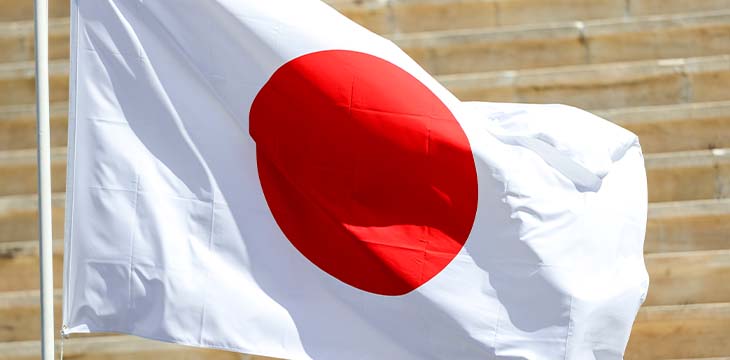|
Getting your Trinity Audio player ready...
|
Japan has pledged to plug any loopholes in its digital currency ecosystem that Russia might use to evade sanctions. Top government officials are set to revise the country’s foreign exchange regulations to ensure that Russians don’t use local exchanges.
Reuters broke the news, revealing that the Japanese government will submit a revision of the Foreign Exchange and Foreign Trade Act to the current parliament session.
In a press conference, Chief Cabinet Secretary Hirokazu Matsuno revealed that the government is committed to working with its western allies to ensure that Russia doesn’t find a way to circumvent the crippling sanctions imposed by the United States, the European Union, the United Kingdom, Canada, and other major economies.
In a follow-up, Prime Minister Fumio Kishida further called for the law to be amended in a parliamentary session on Monday. He also stressed the need for coordinated moves with Western allies.
Kishida had recently attended a Group of Seven (G7) summit in which Russia’s invasion of Ukraine was the key topic of discussion. The summit moved to further crackdown on Russia through sanctions, including blocking all financial transactions involving the Russian central bank’s international gold reserves as well as ramping up humanitarian aid to Ukraine.
It’s not yet clear what amendments the Japanese government wants to make to the two Acts. One Finance Ministry official told Reuters that government officials were still discussing the proposed changes and that nothing concrete had been arrived at yet.
However, according to one Japanese economist, the amendments will likely subject exchanges to the same regulations as financial institutions.
Speaking to the outlet, Saisuke Sakai, the senior economist at Mizuho Research and Technologies, said, “The revision presumably enables the government to apply the law to crypto-asset exchanges like banks and oblige them to scrutinise whether their clients are Russian sanction targets.”
Japan has been scrutinizing digital currency exchanges recently, and the likelihood that Russia will use them to move funds as sanctions cripple its financial institutions. Earlier this month, the Financial Services Agency and the Ministry of Finance demanded that these exchanges must commit not to facilitate any transactions with sanctions targets. The move was in line with a directive by the G7 to monitor digital asset transactions for Russia and Belarus-linked activity.
“We decided to make an announcement to keep the G7 momentum alive. The sooner the better,” a senior official at the FSA said at the time.
The Japan Virtual Currency Exchange Association, a self-regulation entity, responded by saying that it would work with exchanges to adhere to the requirement.
“[We] will take guidance and other necessary measures for members who are engaged in the crypto asset exchange business so that they can appropriately and smoothly respond to the response required by this request,” it said.
Digital assets have become a significant factor in the Ukraine-Russia conflict. Ukraine has continued to plead with the global community for donations, including in digital assets. To date, the country has raised over $100 million in digital asset contribution, the Ministry of Digital Transformation confirmed earlier this month.
There have also been calls for major digital asset exchanges to block Russian users, including by Mykhailo Fedorov, the outspoken Vice Prime Minister who also serves as the Minister for Digital Transformation.
I'm asking all major crypto exchanges to block addresses of Russian users.
It's crucial to freeze not only the addresses linked to Russian and Belarusian politicians, but also to sabotage ordinary users.
— Mykhailo Fedorov (@FedorovMykhailo) February 27, 2022
However, most major exchanges refused to heed the call. Coinbase CEO Brian Armstrong was one of the first to assert that he would not be banning Russian users.
“We believe everyone deserves access to basic financial services unless the law says otherwise,” he stated.
Kraken’s Jesse Powell was of similar views, saying that banning Russians “is a pretty extreme measure, and it’s far beyond turning off someone’s access to their music streaming service, or their photo sharing app,” alluding to Spotify, which suspended its service in Russia.
And then there’s Binance which has been accused of working with the Russian government by Michael Chobanian, the founder of KUNA, a Ukrainian exchange whose fundraising efforts have brought in more than $60 million.
“The problem with Binance is not just that they still continue working on both sides, it’s that they showed cooperation with the Russian government before the war, and as far as I know, they still continue cooperating with the Russian government,” Chobanian told one outlet.
Watch: CoinGeek New York presentation, Increasing Footprints of BSV Blockchain in Middle East & South Asia

 03-01-2026
03-01-2026 




